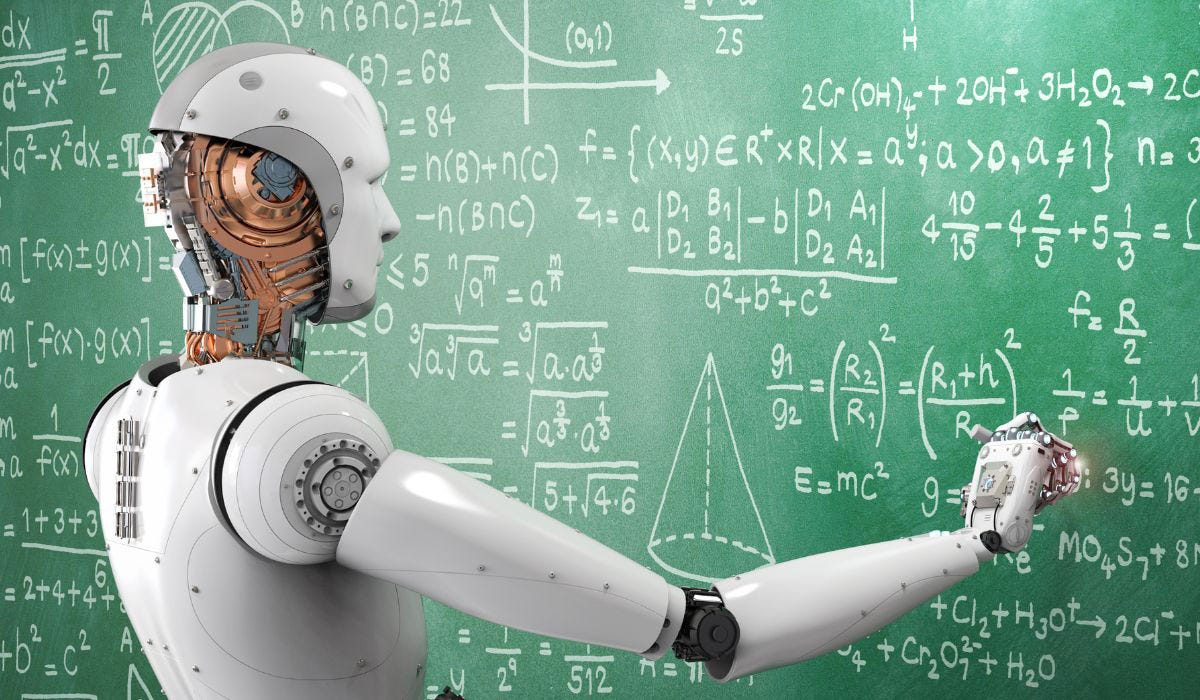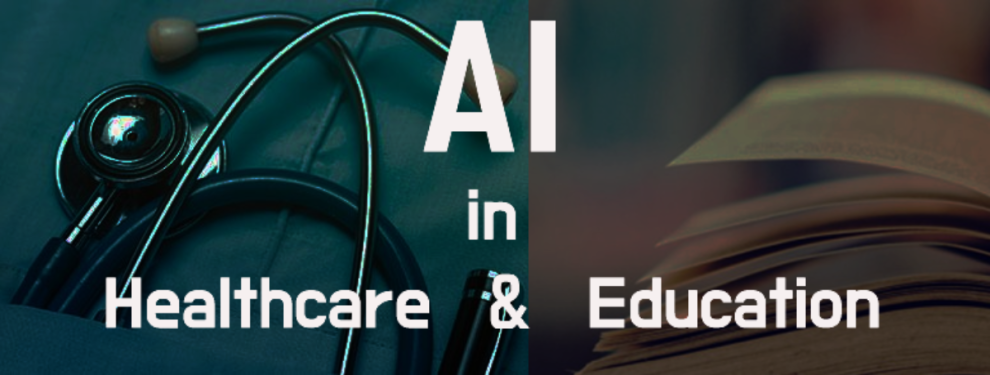Artificial intelligence (AI) has rapidly shifted from science fiction to everyday reality, influencing nearly every facet of our lives. While some may raise concerns about its potential consequences, AI’s power for good is undeniable, particularly in sectors like healthcare and education.
In this blog, we’ll explore how AI is transforming these crucial industries, making them more accessible, efficient, and personalized.
Revolutionizing Healthcare with AI
The healthcare industry is ripe for AI’s transformative potential. From early disease detection to personalized treatment plans, AI is making significant strides in improving patient outcomes and streamlining medical processes. Here are some key areas where AI is impacting healthcare:
Medical Diagnosis
AI algorithms can analyze vast amounts of medical data, including imaging scans and electronic health records, to identify diseases with greater accuracy and at earlier stages. This allows for earlier intervention and better treatment outcomes.
Personalized Medicine
AI can analyze a patient’s individual genetic makeup, medical history, and lifestyle to create personalized treatment plans. This targeted approach can lead to more effective therapies and reduced side effects.
Virtual Assistants and Chatbots
AI-powered virtual assistants and chatbots can provide patients with 24/7 access to healthcare information and support. They can answer questions, schedule appointments, and even offer basic medical advice.
Drug Discovery and Development
AI can analyze vast datasets of molecular and genetic data to accelerate the drug discovery process and develop more effective medications.

AI’s Transformative Power in Education
Education is another sector where AI is making a significant impact. From personalized learning to adaptive teaching platforms, AI is transforming the way we learn and teach. Here are some key areas where AI is impacting education:
Personalized Learning
AI algorithms can analyze a student’s strengths, weaknesses, and learning style to create personalized learning plans that cater to their individual needs. This can lead to improved academic performance and a more engaging learning experience.
Adaptive Learning Platforms
AI-powered learning platforms can adjust the difficulty and pace of instruction based on a student’s progress. This ensures that students are challenged appropriately and not held back by material that is too easy or too difficult.
Virtual Tutors and Language Learning
AI-powered virtual tutors can provide students with one-on-one support and feedback, allowing them to learn at their own pace and receive immediate feedback. Additionally, AI-powered language learning apps can make learning a new language more engaging and effective.
Accessibility and Inclusivity
AI can be used to develop tools and technologies that make education more accessible to students with disabilities. For example, AI-powered text-to-speech tools can help students with dyslexia read and understand written material.
Challenges and Considerations with AI
While AI’s potential for good in healthcare and education is undeniable, it’s important to acknowledge the challenges and ethical considerations that come with its implementation. Some key concerns include:
Bias and Discrimination
AI algorithms can perpetuate existing biases if trained on biased data. It’s crucial to ensure that AI systems are developed and used ethically, avoiding discrimination based on factors such as race, gender, or socioeconomic status.
Job Displacement
Automation through AI could lead to job displacement in certain sectors. It’s important to consider the potential impact of AI on the workforce and develop strategies to mitigate job losses.
Privacy and Security
AI systems that collect and analyze personal data raise concerns about privacy and security. Robust data protection measures need to be in place to ensure that individuals’ data is protected from misuse.
The Bright Future of AI
Despite the challenges, the future of AI in healthcare and education is bright. As AI technology continues to evolve, we can expect even more innovative applications that will further improve healthcare outcomes and educational experiences.
It’s crucial to approach AI with a cautious optimism, ensuring its development and use are guided by ethical principles and a commitment to social good.
By harnessing the power of AI responsibly, we can create a future where everyone has access to quality healthcare and education, regardless of their background or circumstances. Let’s work together to ensure that AI becomes a force for good in the world, transforming lives and paving the way for a brighter future.
AI in Healthcare and Education – Key Facts and Statistics
- The global AI in healthcare market is expected to reach $66.8 billion by 2025.
- The global AI in education market is expected to reach $39.8 billion by 2027.
- In 2020, over 800 AI startups were working on healthcare solutions.
















Add Comment